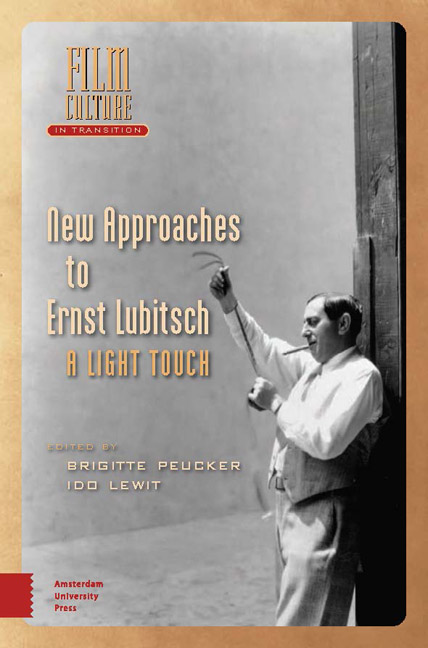7 - Theatrical Yet Deeply Cinematic : Situating Lubitsch’s Musicals Within the Early Sound Era
Published online by Cambridge University Press: 16 April 2024
Summary
Abstract
Although Ernst Lubitsch has been praised as a pioneer of early sound-era musicals, film scholarship lacks a precise understanding of how and why his work stood out in this period. Focusing mainly on his first two musicals—The Love Parade (1929) and Monte Carlo (1930)—this essay compares Lubitsch's work to other extant musicals from the period and examines how his background in silent filmmaking informed his approach. By honoring stage-bound practices yet innovating cinematically, Lubitsch crafted numbers that were unusually intimate, and others that pushed beyond the space and time confines of the stage.
Keywords: musicals, The Love Parade, Monte Carlo, Germany, theater
What was so distinctive about Ernst Lubitsch's early sound era musicals? What made them stand out in their day, and what enabled Lubitsch to be an early pioneer of the genre? Though scholars have described in often brief and general terms Lubitsch's skillful use of a few new early sound tools, we lack an extensive understanding of his early sound methods and the ways in which they reflected or differed from mainstream early sound practices. Focusing mainly on Lubitsch's first two musicals (The Love Parade [1929] and Monte Carlo [1930]), this essay examines how Lubitsch's work compared to typical methods, and considers influences that likely shaped his approach. Whereas the bulk of early film musicals aimed to simulate the experience of watching numbers on a stage, Lubitsch's numbers achieved a complex balance of honoring stage traditions and providing cinema-specific experiences. In The Love Parade, Lubitsch framed his musical numbers as unprecedentedly intimate and private encounters, while in Monte Carlo, he experimented with cinematically manipulating time and space within the numbers themselves. Through his cinema-specific approaches, his balancing of stage and screen methods, and the intimacy he injected into many of his numbers, Lubitsch offered the industry new models for the nascent musical genre that deserve a closer look.
Why Lubitsch was able to take such a distinctly different approach remains more speculative, with factors likely including Lubitsch's established prestige and the director-friendly environment at Paramount, where he worked.
- Type
- Chapter
- Information
- New Approaches to Ernst LubitschA Light Touch, pp. 141 - 160Publisher: Amsterdam University PressPrint publication year: 2024



